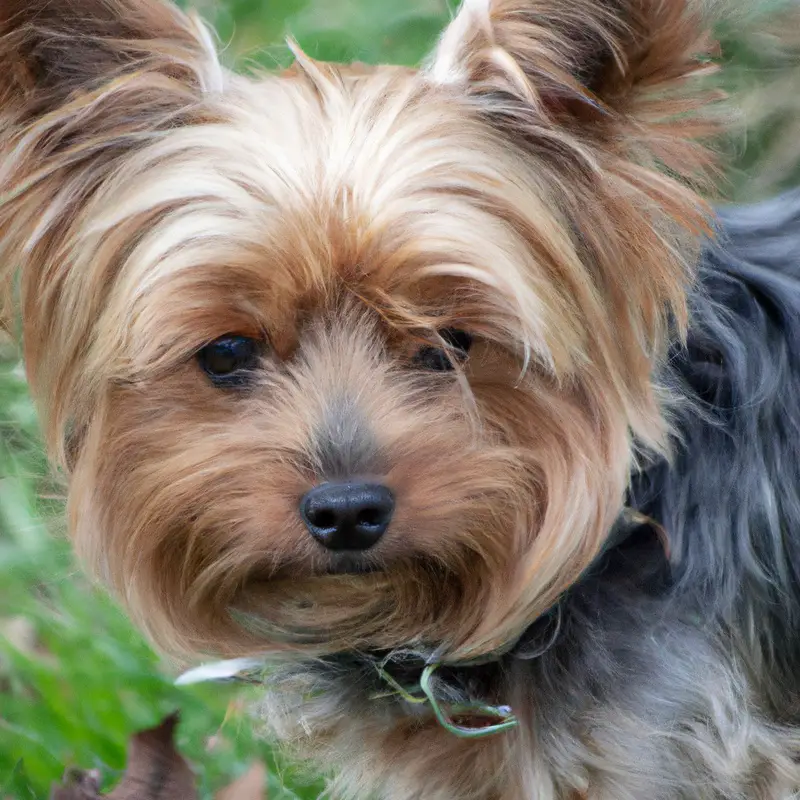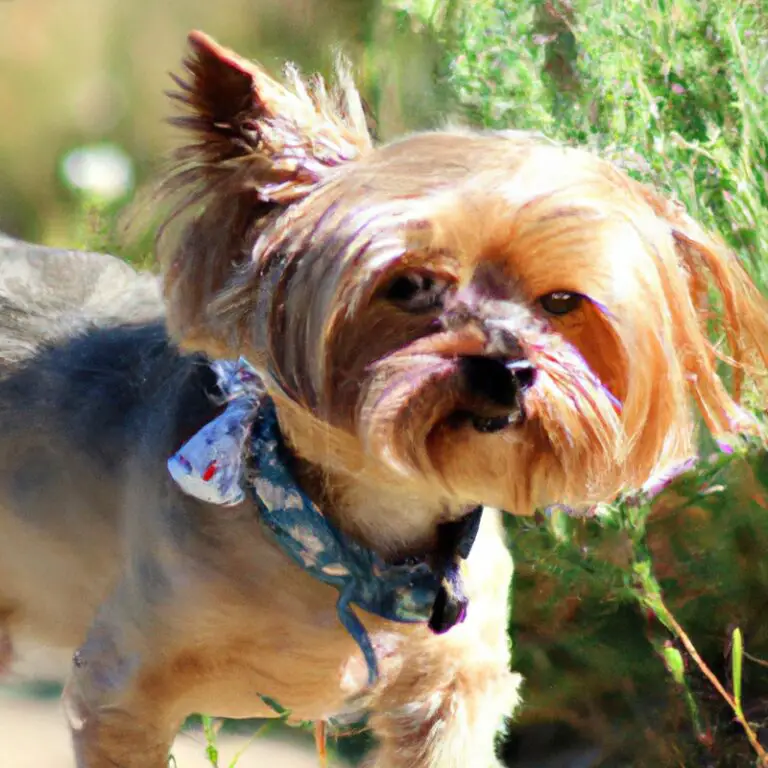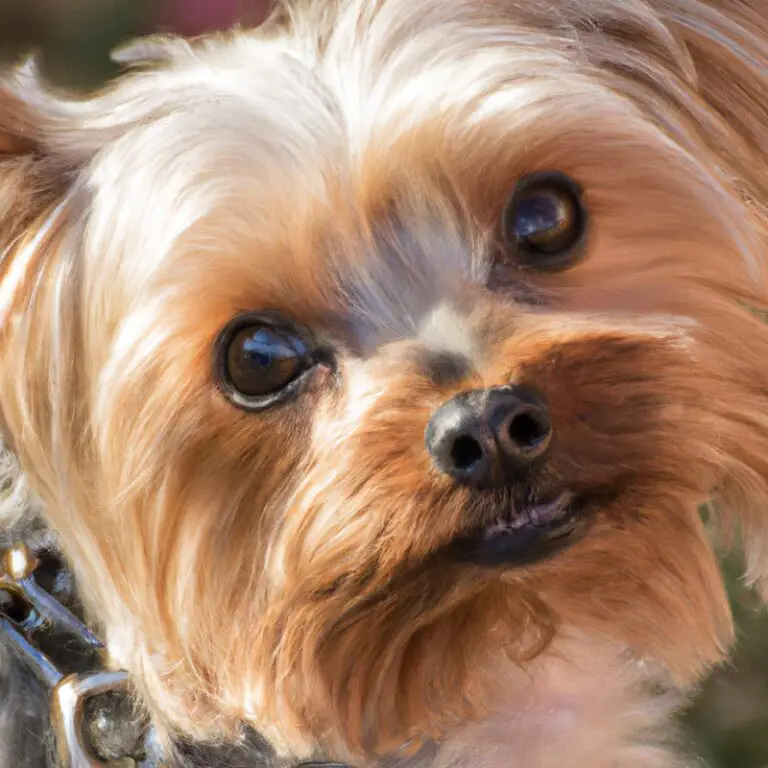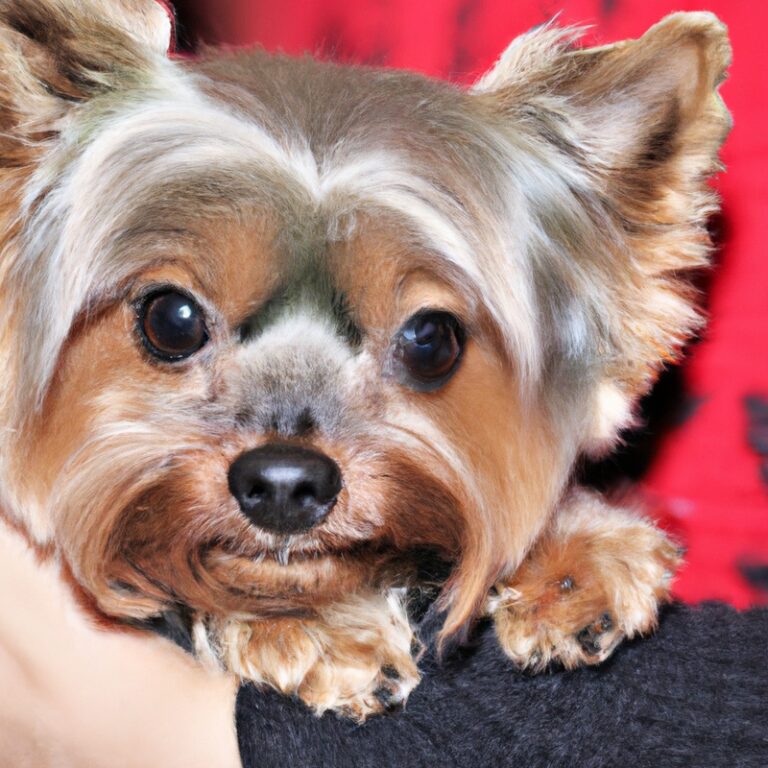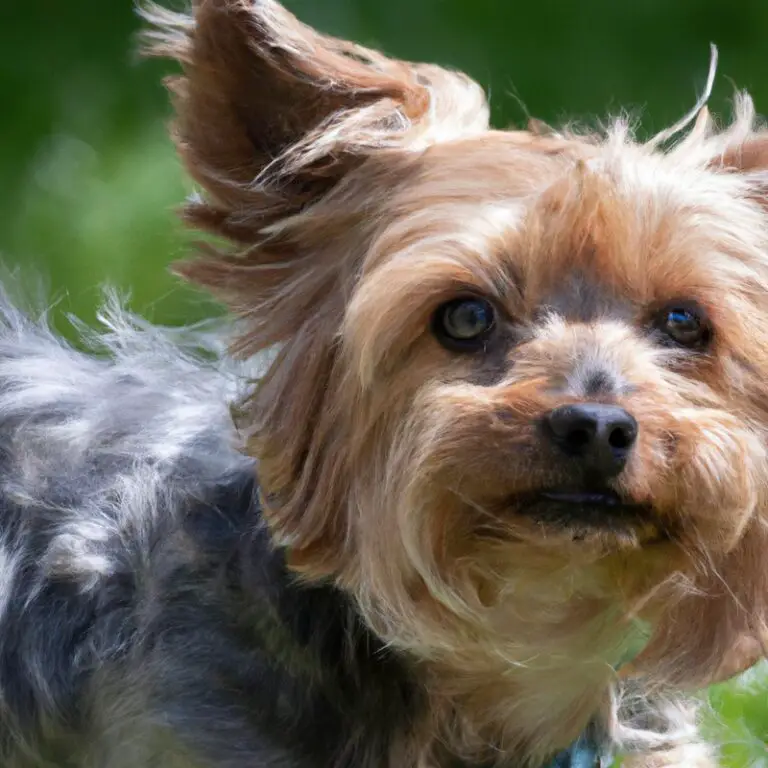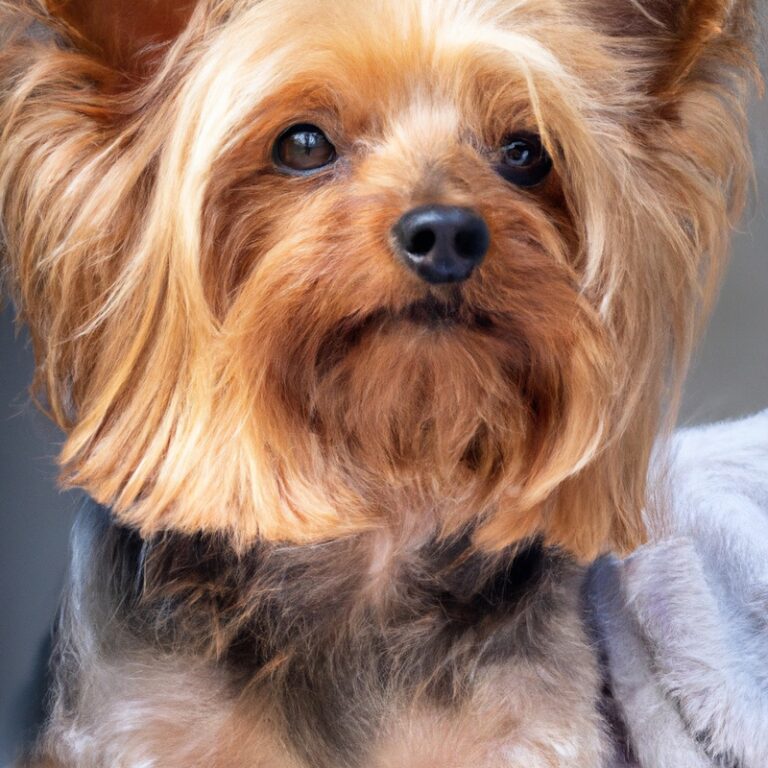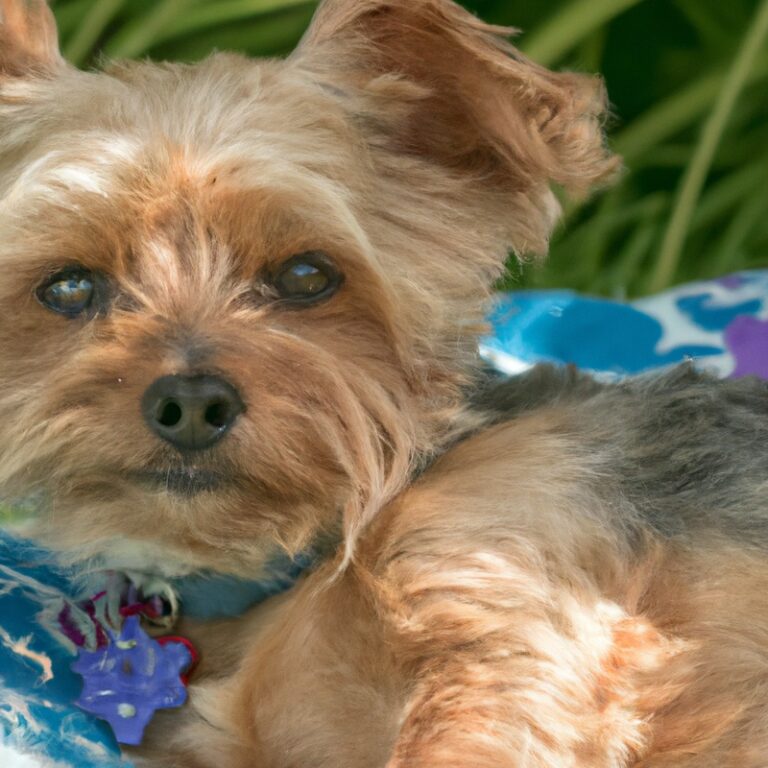What Is The Best Age To Start Training a Yorkshire Terrier Puppy?
Key Takeaways:
- The best age to start training a Yorkshire Terrier puppy is around 8 to 12 weeks old.
- Early socialization and basic obedience training are crucial for Yorkshire Terrier puppies.
- Patience, consistency, and positive reinforcement are key in training a Yorkshire Terrier puppy.
- Training should be tailored to the individual needs and personality of the Yorkshire Terrier puppy.
Are you a proud owner of a Yorkshire Terrier puppy, or considering bringing one into your home? If so, you may be wondering when is the best time to start training them.
Well, look no further! As an expert on Yorkshire Terriers, I’m here to guide you through this crucial aspect of puppy development.
In this article, we’ll discuss the importance of training for Yorkshire Terriers, the benefits of early training, factors to consider when deciding the right age to start, training techniques, recommended age for specific training milestones, challenges you may encounter, and whether professional training or a do-it-yourself approach is best for your Yorkie puppy. So, let’s dive in and get those tails wagging with excitement!
| Age | Training | Pros | Cons |
|---|---|---|---|
| 8-12 weeks | Basic obedience training | – Start building good habits early – Puppy is eager to learn and socialize | – Limited attention span – Less physically coordinated |
| 3-6 months | House training and commands | – More focus and attention – Puppy can understand basic commands | – May show signs of independence |
| 6-12 months | Advanced training and socialization | – Can learn complex commands – Improved coordination and impulse control | – May test boundaries and be stubborn at times |
The Importance of Puppy Training for Yorkshire Terriers
Why Training a Yorkshire Terrier Puppy is Crucial for their Development
Training a Yorkshire Terrier puppy is crucial for their overall development. Let me break it down for you.
First and foremost, training helps to establish a strong bond between you and your pup.
By spending time together and teaching them basic commands, you build trust and communication. This sets the foundation for a happy and well-behaved companion.
Secondly, training provides mental stimulation for Yorkies.
These intelligent little dogs need mental exercise just as much as physical activity. Learning new commands and tricks keeps their minds sharp and wards off boredom.
Moreover, proper training helps to prevent behavior problems in the future.
By teaching your Yorkshire Terrier the rules of the household and reinforcing good manners, you can avoid issues like excessive barking, aggression, and destructive chewing. Lastly, training allows you to keep your Yorkie safe in different situations.
Teaching them to come when called, stay, or walk on a leash properly can prevent accidents or dangerous encounters.
In a nutshell, training is a crucial part of a Yorkshire Terrier’s development. It enhances your relationship, stimulates their minds, prevents behavioral issues, and ensures their safety.
So, don’t overlook the importance of training your Yorkie puppy from an early age.
Benefits of Training a Yorkshire Terrier Puppy at an Early Age
Training a Yorkshire Terrier puppy at an early age brings several benefits. First and foremost, early training helps establish a strong foundation for good behavior and manners.
It teaches them basic commands like sit, stay, and come, which are essential for their safety and well-being.
Secondly, early training helps in socializing the puppy with other dogs and people, making them more confident and comfortable in different environments. Additionally, training at a young age improves their focus, mental stimulation, and overall intelligence.
Lastly, early training allows you to quickly address any behavioral issues before they become ingrained habits.
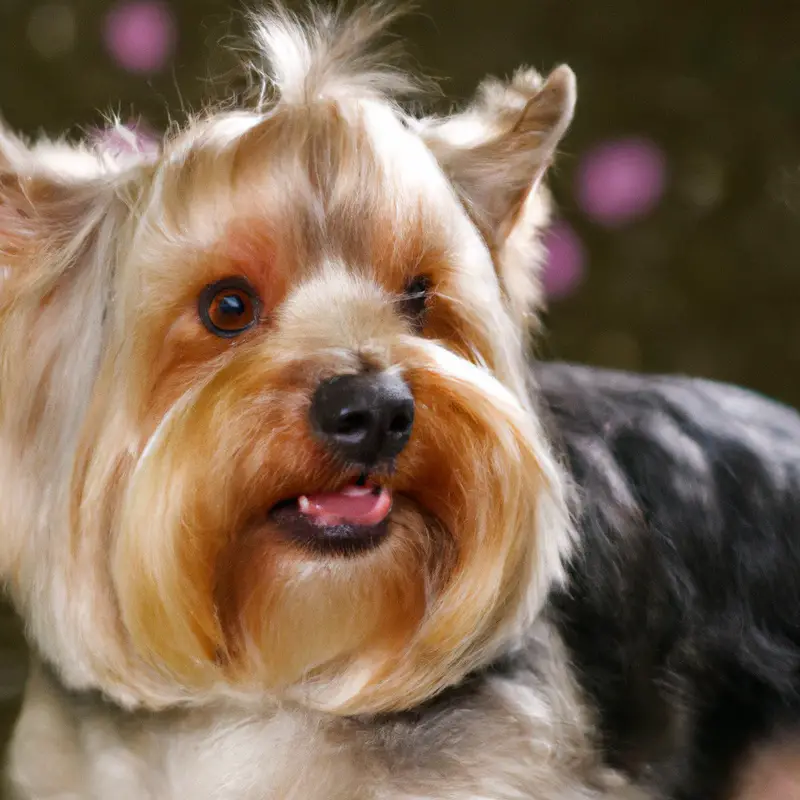
Factors to Consider When Deciding the Best Age to Start Training a Yorkshire Terrier Puppy
Physical and Mental Maturity of Yorkshire Terriers
Every Yorkshire Terrier is unique and develops at their own pace. When it comes to training, it’s important to consider their physical and mental maturity.
First and foremost, make sure your Yorkshire Terrier is physically mature before starting any intense training sessions.
This usually happens around six months of age, when their bones and joints are fully developed. Training exercises that involve jumps or strenuous physical activity should be avoided until then to prevent any injuries.
Secondly, mental maturity is crucial for effective training.
Just like humans, dogs need time to develop their cognitive abilities. By waiting until your Yorkshire Terrier is mentally mature, around eight to ten months of age, you can ensure that they will be more receptive to training commands and have a better understanding of what is expected of them.
Attention Span and Cognitive Development
Attention Span and Cognitive Development are two crucial factors to consider when determining the best age to start training a Yorkshire Terrier puppy. A puppy’s attention span refers to how long they can focus and concentrate on a particular task or command.
At a young age, puppies generally have shorter attention spans, making it more challenging for them to understand and retain training commands.
However, as they grow older, their attention span improves, allowing them to absorb information more effectively. Cognitive development, on the other hand, refers to a puppy’s ability to learn, think, and problem solve.
Starting training too early, when a puppy’s cognitive abilities are still developing, might overwhelm them and hinder their progress.
It is important to wait until their cognitive capabilities have matured, usually around 3 to 4 months of age. Therefore, it is recommended to wait until your Yorkshire Terrier puppy has developed a longer attention span and a more advanced cognitive ability before starting their training.
This will ensure that they can fully engage and understand the training process, leading to more successful and enjoyable training sessions.
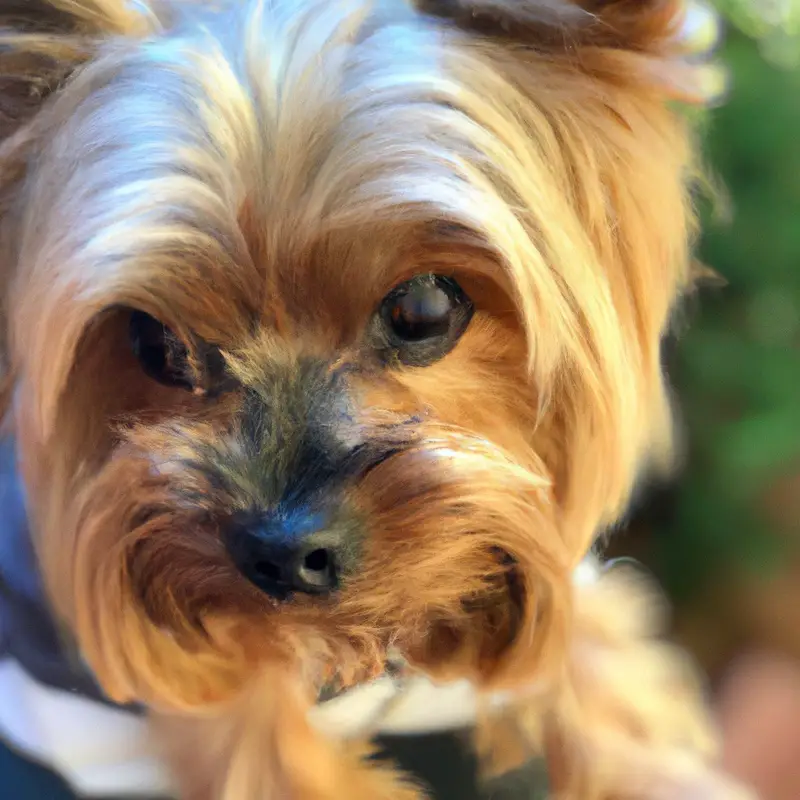
Socialization Needs of Yorkshire Terrier Puppies
Yorkshire Terrier puppies have important socialization needs that should be addressed from a young age. Socialization is the process of exposing your puppy to various environments, people, animals, and experiences to help them become well-rounded and adaptable adults.
It’s crucial to introduce your Yorkshire Terrier to different sights, sounds, and situations to prevent fear or aggression issues later in life.
This can include visits to different places, interactions with other dogs and people, and exposure to different stimuli. By socializing your Yorkshire Terrier puppy early on, you can help them grow into a confident and well-behaved companion.
Training Techniques for Yorkshire Terrier Puppies
Positive Reinforcement Training Methods
Positive reinforcement training methods are an effective way to teach and train Yorkshire Terrier puppies. This approach focuses on rewarding the desired behavior to encourage repetition.
First and foremost, it is important to use positive reinforcement techniques as they create a positive learning environment.
This means rewarding your Yorkshire Terrier puppy with treats, praise, or play when they perform the desired behavior. For example, if you want to teach them to sit, reward them with a treat when they sit on command.
By incorporating positive reinforcement training methods, you can build a strong bond with your puppy while also teaching them important skills and commands.
Remember to be consistent and patient, as puppies learn at their own pace. In addition to treats, praise, and play, you can also use clicker training as part of positive reinforcement.
Clicker training involves using a clicker device to create a distinct sound that marks the moment your puppy performs the desired behavior.
This sound is then followed by a reward. By implementing positive reinforcement training methods, you can create a positive and enjoyable training experience for your Yorkshire Terrier puppy.
It helps them learn and grow while strengthening the bond between you and your furry friend.
Crate Training for Yorkshire Terrier Puppies
Crate training can be a helpful tool when it comes to potty training and providing a safe space for your Yorkshire Terrier puppy. First and foremost, make sure to choose a crate that is the appropriate size for your puppy.
The crate should be big enough for them to comfortably turn around and lie down, but not too large where they can use one end as a bathroom.
Start by placing their crate in a quiet, low-traffic area of your home. Introduce them to the crate gradually, allowing them to explore and associate positive experiences with it.
Use treats and praise to encourage them to go inside the crate.
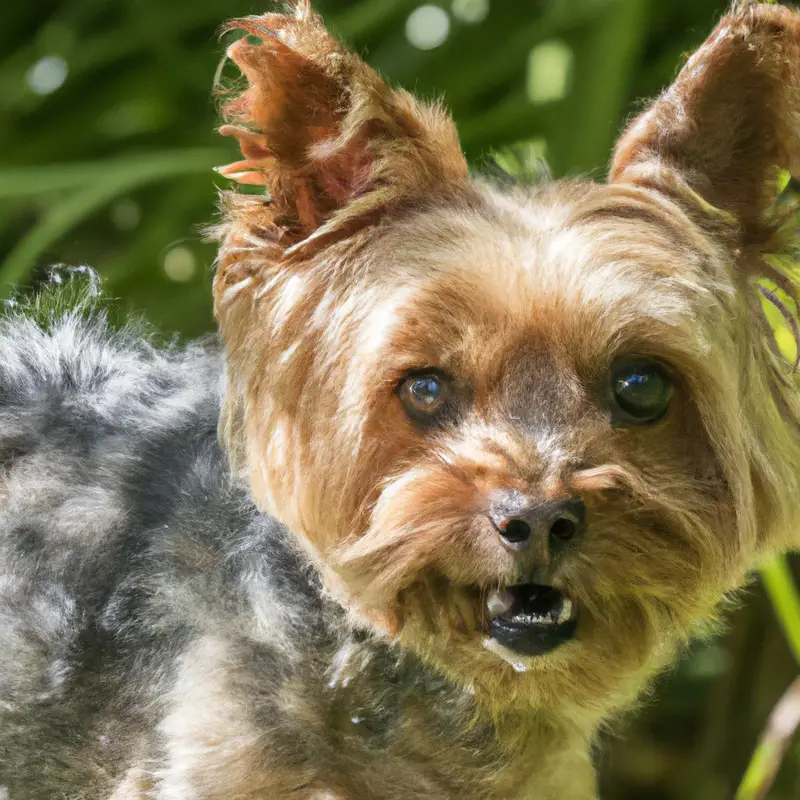
Potty Training Tips for Yorkshire Terrier Puppies
Potty training your Yorkshire Terrier puppy can be a challenging task, but with some patience and consistency, it can be done successfully. Here are some tips to help you along the way:
- Establish a routine: Set a regular schedule for bathroom breaks. Take your puppy outside first thing in the morning, after meals, before bedtime, and throughout the day. Consistency is key!
- Use positive reinforcement: Praise and reward your puppy when they eliminate in the appropriate spot. This can include treats, verbal praise, or petting. Positive reinforcement helps them understand what behavior is desired.
- Watch for signs: Pay attention to your puppy’s behavior and body language. They may sniff around, circle, or whine when they need to go. Take them outside promptly when you notice these signs.
- Limit their space: Use a crate or a confined area when you can’t supervise your puppy. Dogs generally avoid soiling their living area, so this can help encourage them to hold it until you’re able to take them outside.
- Clean accidents properly: Accidents happen, but it’s important to clean them up thoroughly. Use an enzymatic cleaner to remove any scent that may attract your puppy to eliminate in the same spot again.
Recommended Age to Start Training Yorkshire Terrier Puppies
Early Socialization and Basic Commands
Early socialization and basic commands are two key aspects of training for Yorkshire Terrier puppies. Socializing your puppy from a young age helps them become well-adjusted and comfortable in various situations, such as meeting new people and other animals.
It also helps prevent behavioral issues in the future.
Basic commands, such as sit, stay, and come, are important for establishing boundaries and ensuring your puppy’s safety. By teaching these commands early on, you can establish a clear line of communication and build a foundation for further training.
Remember to keep training sessions short and fun, using positive reinforcement techniques like treats and praise.
Consistency and patience are key when training Yorkshire Terrier puppies, as they are intelligent and eager to please. With early socialization and basic command training, you can set your Yorkshire Terrier puppy up for a lifetime of good behavior and companionship.
Basic Obedience Training
Basic obedience training is an essential part of raising a well-behaved and disciplined Yorkshire Terrier puppy. It helps them develop good manners and understand basic commands.
Before starting obedience training, make sure your puppy is at least 8 weeks old and has had time to settle into their new home.
The first step in basic obedience training is teaching your Yorkshire Terrier puppy to respond to their name. Practice calling their name in a positive and enthusiastic tone, rewarding them with a treat or praise when they respond.
Another important command to teach is “sit.” Begin by holding a treat close to your puppy’s nose, then slowly move your hand upward.
As their head follows the treat, their bottom will naturally lower to the ground. Say “sit” as soon as they are in the sitting position, and reward them with the treat.
Next, work on the “stay” command.
Start by having your puppy sit, then hold your hand out in a stop gesture and say “stay.” Take a step back and if they remain in the sitting position, reward them with a treat. Gradually increase the distance and duration of the stay command as your puppy becomes more comfortable.
Lastly, teaching your Yorkshire Terrier puppy to come when called is crucial for their safety.
Use a positive and encouraging tone, say their name followed by “come,” and reward them generously when they come to you. Make sure to practice in a secure area before attempting off-leash recalls.
Advanced Training and Specialized Skills
Advanced training and specialized skills are important aspects of Yorkshire Terrier puppy training. As your puppy grows, you can gradually introduce more advanced commands and tricks to challenge their intelligence and keep them mentally stimulated.
Some examples of advanced training include teaching your Yorkshire Terrier to fetch specific items, perform agility exercises, or even learn complex tricks like roll over or play dead.
These advanced skills not only make your dog more impressive but also strengthen the bond between you and your furry friend. In addition to advanced commands, you may also consider specialized skills for your Yorkshire Terrier.
These can include training them for specific activities such as therapy work, search and rescue, or participating in dog shows.
Specialized training allows your Yorkshire Terrier to showcase their unique talents and abilities.
Challenges and Considerations for Training Yorkshire Terrier Puppies
Fragile Health and Exercise Limitations
Fragile Health and Exercise Limitations Let’s talk about the fragile health and exercise limitations of Yorkshire Terrier puppies. These little pups may be cute and small, but they have delicate health that requires special attention.
Due to their size, they can easily get injured during play or exercise.
It’s important to avoid activities that may strain their fragile bones and joints. Keep in mind that excessive exercise can be harmful to their developing bodies.
Instead, opt for shorter, low-impact activities like short walks or gentle play sessions.
Remember to give them plenty of rest to avoid overexertion. Regular visits to the vet are also crucial to monitor their health and catch any potential issues early on.
So, while it’s important to keep your Yorkshire Terrier puppy active and engaged, it’s equally important to be mindful of their limitations and prioritize their well-being.
Stubbornness and Independent Nature
Stubbornness and independent nature are two common traits often associated with Yorkshire Terriers. These little furballs can be quite strong-willed and have a mind of their own.
While these traits can make training a bit challenging, they can also be seen as positive qualities.
Yorkshire Terriers are smart and confident, which means they can excel in certain training exercises. However, it’s important to approach training with patience and consistency.
Understanding and respecting their independent nature will go a long way in successfully training your Yorkshire Terrier puppy.
Consistency and Patience in Training Process
Consistency and patience are key factors in successfully training your Yorkshire Terrier puppy. It’s important to be consistent with the commands, rules, and routines you establish during training.
By using the same cues and expectations every time, your puppy will learn faster and be less confused.
Patience is also crucial as puppies take time to understand and remember what you’re teaching them.
Professional Training vs. DIY Training for Yorkshire Terrier Puppies
Pros and Cons of Professional Training Programs
When considering professional training programs for your Yorkshire Terrier puppy, there are both pros and cons to take into account. Let’s start with the pros.
- Expert guidance: Professional trainers have the knowledge and expertise to effectively train your Yorkshire Terrier. They understand the breed-specific traits and can tailor the training accordingly.
- Structured approach: Professional programs follow a structured curriculum, ensuring that your puppy receives comprehensive and well-rounded training. They cover various obedience commands, socialization, and problem-solving techniques.
- Socialization opportunities: Training programs often provide opportunities for your puppy to socialize with other dogs, helping them develop good manners and proper behavior in different situations.
Now let’s discuss the cons.
- Cost: Professional training programs can be expensive, especially if you opt for private sessions or longer-term programs. It’s important to consider your budget and weigh it against the benefits.
- Time commitment: Participating in a professional training program requires consistent attendance and practice outside of the sessions. It may be challenging to find the time in your schedule to commit to the training program’s requirements.
- Lack of customization: While professional trainers have experience with various breeds, they may not focus extensively on individual specific needs. DIY training allows for more personalized attention to your puppy’s unique personality and quirks.
Ultimately, the decision to enroll your Yorkshire Terrier puppy in a professional training program depends on your personal preferences, budget, and time availability. Consider these pros and cons, and choose the option that best suits your circumstances and goals for your furry friend’s training.
Training Resources and Guides for Yorkshire Terrier Owners
If you’re a Yorkshire Terrier owner, you’ll be glad to know that there are plenty of training resources and guides available to help you in your journey. Here are some helpful options:
- Books and E-books: Many expert trainers and experienced dog owners have written books specifically for Yorkshire Terrier training. These books cover topics ranging from basic obedience to advanced tricks, and can provide you with valuable insights and techniques.
- Online Courses: Online courses offer step-by-step instructions and video demonstrations that you can follow at your own pace. They often cover a wide range of training topics, from potty training to leash manners, and can be a convenient option for those who prefer learning from the comfort of their own home.
- Training Videos: YouTube and other video platforms offer a wealth of training videos specifically tailored for Yorkshire Terriers. These videos provide visual demonstrations, making it easier for you to understand and apply the training techniques.
- Training Classes: If you prefer hands-on learning, consider enrolling your Yorkshire Terrier in a training class. These classes are usually conducted by professional trainers and provide a structured environment for both you and your dog to learn and practice new skills.
- Online Forums and Communities: Joining online forums or communities dedicated to Yorkshire Terrier owners can be a great way to connect with other dog owners facing similar training challenges. Here, you can share experiences, seek advice, and learn from the collective knowledge of the community.
Benefits of Building a Strong Bond Through DIY Training
Building a strong bond with your Yorkshire Terrier through DIY training can have several benefits. Firstly, it allows you to spend quality time with your puppy and strengthen your relationship.
By taking on the role of a trainer, you establish trust and establish yourself as the leader.
This can lead to better obedience and overall behavior from your Yorkshire Terrier. Secondly, DIY training gives you the opportunity to understand your dog’s unique personality and needs.
You can tailor the training methods to suit your pup’s specific learning style, making the process more effective and enjoyable for both of you.
Thirdly, when you are the one training your Yorkshire Terrier, you have control over the techniques used and the pace at which the training progresses. You can focus on positive reinforcement and create a positive and safe learning environment for your puppy.
Building a strong bond through DIY training also allows you to address any behavioral issues that may arise in a timely manner.
By being actively involved in the training process, you can identify and correct any problem behaviors early on, preventing them from becoming more serious in the future.
Tips and Tricks to Ease the Training Process for Yorkshire Terrier Puppies
Establishing a Routine and Set Training Times
Establishing a routine and setting consistent training times is key when it comes to training a Yorkshire Terrier puppy. By doing this, you provide structure and stability for your puppy, making the training process much easier for both of you.
First and foremost, it’s important to establish a daily routine for your puppy.
This includes regular feeding times, potty breaks, playtime, and training sessions. By following a consistent schedule, your puppy will learn what to expect and will be more likely to comply with training.
Set specific training times each day.
This helps create a focused environment and allows you to dedicate uninterrupted time to train your Yorkshire Terrier puppy. Plan short training sessions, around 10-15 minutes, multiple times a day.
Consistency and repetition are key when teaching new commands and behaviors.
Remember to be patient and positive during training. Puppies have short attention spans and may struggle to grasp commands at first.
With a consistent routine and set training times, your Yorkshire Terrier puppy will gradually learn and become more responsive to your training efforts.
Using Treats and Rewards Effectively
Using treats and rewards effectively is a key aspect of training your Yorkshire Terrier puppy. First and foremost, it’s important to choose the right treats.
Look for small, soft treats that your puppy can easily consume during training sessions.
Treats that can be easily broken into small pieces are ideal. When using treats as a reward, timing is crucial.
Make sure to offer the treat immediately after your puppy performs the desired behavior.
This helps them associate the treat with the action they just did. Quick and consistent timing will reinforce good behavior and make the training process more effective.
Additionally, variety is important when it comes to treats.
Using a mix of treats can keep your puppy engaged and motivated during training. Consider using different flavors or textures to keep things interesting.
Seeking Guidance from Yorkshire Terrier Breed Experts
When you’re looking to train your Yorkshire Terrier puppy, seeking guidance from breed experts can be incredibly valuable. These experts have extensive knowledge and experience specific to Yorkshire Terriers, so they understand their unique traits and behaviors.
They can provide you with tailored advice and techniques that are proven to be effective for this particular breed.
Whether it’s house training, obedience training, or socialization, consulting with Yorkshire Terrier breed experts will give you the best strategies and insights to help you succeed in training your puppy properly. So don’t hesitate to reach out and ask for their guidance to ensure the best outcomes for you and your furry friend.
Final Verdict
The best age to start training a Yorkshire Terrier puppy is as early as possible. Training at a young age allows for optimal development and helps establish good behaviors and habits.
It is crucial to consider the physical and mental maturity, attention span, cognitive development, and socialization needs of Yorkshire Terriers when determining the right age to start training.
Positive reinforcement techniques, crate training, and effective potty training tips can make the process smoother. While there are challenges and considerations, DIY training can build a strong bond between the owner and the pup.
Seeking guidance from experts and establishing a routine with consistent training times can also make the process easier.
Overall, starting training at a young age is essential for the well-being and growth of Yorkshire Terrier puppies.

